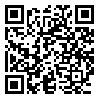Volume 6, Issue 1 (Continuously Updated 2023)
Func Disabil J 2023, 6(1): 0-0 |
Back to browse issues page
Download citation:
BibTeX | RIS | EndNote | Medlars | ProCite | Reference Manager | RefWorks
Send citation to:



BibTeX | RIS | EndNote | Medlars | ProCite | Reference Manager | RefWorks
Send citation to:
Saadatmand M I, Amiri A, Salehi R, Yeganeh A, Mansour Souhani S. Responsiveness of the Persian Version of Forgotten Joint Score-12 Questionnaire After Lower Limb Surgery. Func Disabil J 2023; 6 (1) : 246.1
URL: http://fdj.iums.ac.ir/article-1-208-en.html
URL: http://fdj.iums.ac.ir/article-1-208-en.html
1- Department of Physiotherapy, Rehabilitation Research Center, Iranian Center of Excellence in Physiotherapy, School of Rehabilitation Sciences, Iran University of Medical Sciences, Tehran, Iran.
2- Department of Orthopedic Surgery, Rasoul-e-Akram Hospital, Iran University of Medical Sciences, Tehran, Iran.
3- Department of Physiotherapy, Rehabilitation Research Center, Iranian Center of Excellence in Physiotherapy, School of Rehabilitation Sciences, Iran University of Medical Sciences, Tehran, Iran. ,monireh.saadat93@gmail.com
2- Department of Orthopedic Surgery, Rasoul-e-Akram Hospital, Iran University of Medical Sciences, Tehran, Iran.
3- Department of Physiotherapy, Rehabilitation Research Center, Iranian Center of Excellence in Physiotherapy, School of Rehabilitation Sciences, Iran University of Medical Sciences, Tehran, Iran. ,
Abstract: (1551 Views)
Background and Objectives: The Persian version of the forgotten joint score-12 (FJS-12) questionnaire with acceptable reliability and validity is used to measure the extent of awareness of the joint and the ability of the patient in forgetting the involved joint. This study aims to evaluate the responsiveness of the Persian version of FJS-12 among Persian-speaking subjects following anterior cruciate ligament (ACL) surgery, total knee arthroplasty (TKA), and total hip arthroplasty (THA).
Methods: Twenty-five candidates for ACL surgery, 54 subjects with TKA, and 33 subjects with THA participated in this study. They filled the FJS-12 and Western Ontario and McMaster Universities osteoarthritis index (WOMAC) questionnaires before the surgery and 7 weeks after surgery as well as after physiotherapy. For analysis, receiving operator characteristic (ROC) method and gamma correlation coefficient were used.
Results: The receiving ROC area under the curve (AUC) for FJS-12 and WOMAC index was 0.77 for both, this meant acceptable value, and minimal clinically important change (MCIC) was 32.45 for FJS-12. Finally, the gamma correlation coefficient of the questionnaire was estimated at an average of 0.5.
Conclusion: The FJS-12 questionnaire has acceptable responsiveness that can be used to evaluate the therapeutic effects in clinical settings.
Methods: Twenty-five candidates for ACL surgery, 54 subjects with TKA, and 33 subjects with THA participated in this study. They filled the FJS-12 and Western Ontario and McMaster Universities osteoarthritis index (WOMAC) questionnaires before the surgery and 7 weeks after surgery as well as after physiotherapy. For analysis, receiving operator characteristic (ROC) method and gamma correlation coefficient were used.
Results: The receiving ROC area under the curve (AUC) for FJS-12 and WOMAC index was 0.77 for both, this meant acceptable value, and minimal clinically important change (MCIC) was 32.45 for FJS-12. Finally, the gamma correlation coefficient of the questionnaire was estimated at an average of 0.5.
Conclusion: The FJS-12 questionnaire has acceptable responsiveness that can be used to evaluate the therapeutic effects in clinical settings.
Article number: 246.1
Keywords: Responsiveness, FJS-12, Total hip and knee arthroplasty, ACL reconstruction, Physiotherapy
Type of Study: Research |
Subject:
Physiotherapy
Received: 2023/02/11 | Accepted: 2023/07/23 | Published: 2023/02/6
Received: 2023/02/11 | Accepted: 2023/07/23 | Published: 2023/02/6








